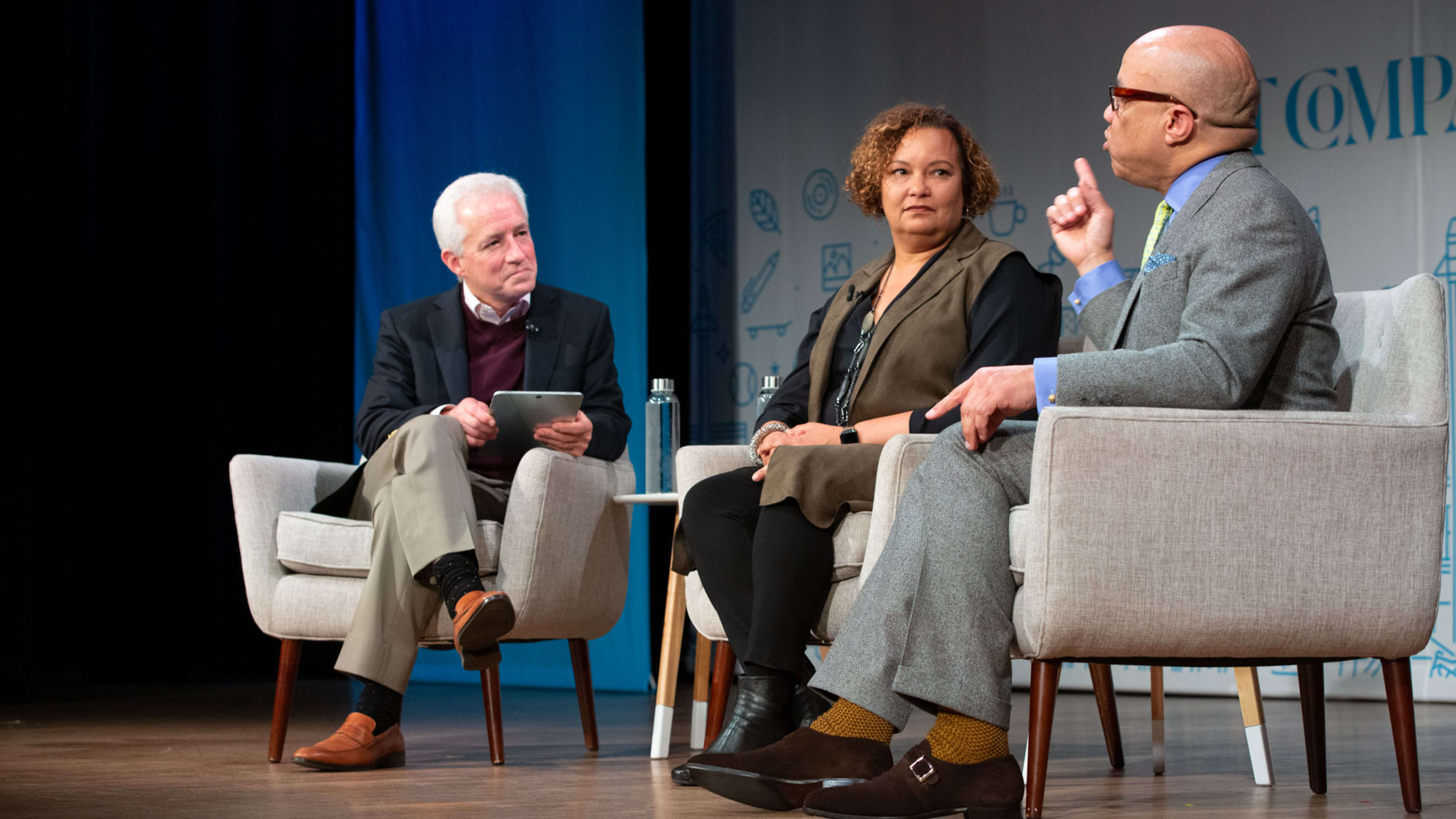Ford Foundation president Darren Walker believes the philanthropy sector is suffering “tremendous harm” by relying too much on concrete metrics as a way to measure success. It’s an unorthodox view, but it’s shared by what might seem like a surprising corporate ally: tech titan Apple.
“Some of the most important things in life cannot be measured,” Walker said during a moderated talk alongside Lisa Jackson, Apple’s vice president of environment, policy, and social initiatives at the Fast Company Innovation Festival. “I saw a major philanthropist’s website, a new multibillion-dollar foundation. And the headline said, ‘If it can’t be measured, we don’t fund it.’ And I thought, What a shame,” he told the crowd.
Nonprofits in many cause areas typically provide donors with bang-for-your-buck statistics about how their money gets spent to build trust or loyalty. People with money to give away have many options, the theory goes, so it’s important to show them how it will be well spent. But both Walker and Jackson said that some types of socially good impacts are less quantifiable than, say, the number of seeds planted to grow food, or vaccines delivered to help people. These often deal with fundamental values crucial to democracy and demand continued attention–because while victories can build on each other, they can also unexpectedly regress.
In fact, some investments might look like long shots, but that doesn’t mean those interested in change should stop taking risks. “We would never have invested, starting in 1952, in the movement for democracy in South Africa, if we had to have a randomized controlled trial to determine whether or not that was an investible proposition,” Walker said. The same goes for the funding for a Sally Hemings history project 25 years ago at Monticello, which included recognizing that Thomas Jefferson had fathered her children. “How do we measure Sally getting her dignity back?” he added, inspiring a huge round of applause.
Neither Walker nor Jackson disputes the need for smart accounting to maximize science-driven breakthroughs or humanitarian aid. “But we have to be unapologetic that there are things that matter in our society, in a civilization that can not be articulated on an Excel spreadsheet, and so I feel firmly about that,” he added, pointing out that Henry Ford probably wouldn’t have ever envisioned a gay black man leading his philanthropy, either.
Apple is known for running on 100% renewable energy (and has committed to adding 4 gigawatts back to the grid by 2020). It’s also the largest corporate donor to Product Red, which aims to eradicate AIDS by 2030 through largely medical interventions. But Jackson pointed out that that company has also given heavily to the Malala Fund, which is working to ensure that every girl around the world has access to 12 years of free quality education. Rather than earmark its donations for things like programs versus overhead, the company wants the group to decide how that money might be best spent. “We’re not going girl by girl to say, ‘Okay, did you get [the right amount of education] today?'” Jackson said. “The majority of it was general support because that organization, if it’s going to reach the potential that it should, needs time to grow, to plan, to set its objectives.”
Walker noted that such gifts help organizations grow in a healthy way to continue their missions after their founders (like Henry Ford) depart. While some in the sector are beginning for favor a spend-down approach to giving, committing huge sums against issues now as opposed to in perpetuity, Walker points out that some key issues never stop needing protection. Nearly a half-century ago, for instance, the funder supported nonprofits battling voter suppression in Southern states. It’s now doing so again as midterms approach.
Instead of an itemized receipt, such moves inspire hope. “There is no greater threat to a democracy than a hopeless citizenry, because they will do desperate things,” Walker said.
Recognize your brand’s excellence by applying to this year’s Brands That Matter Awards before the early-rate deadline, May 3.
